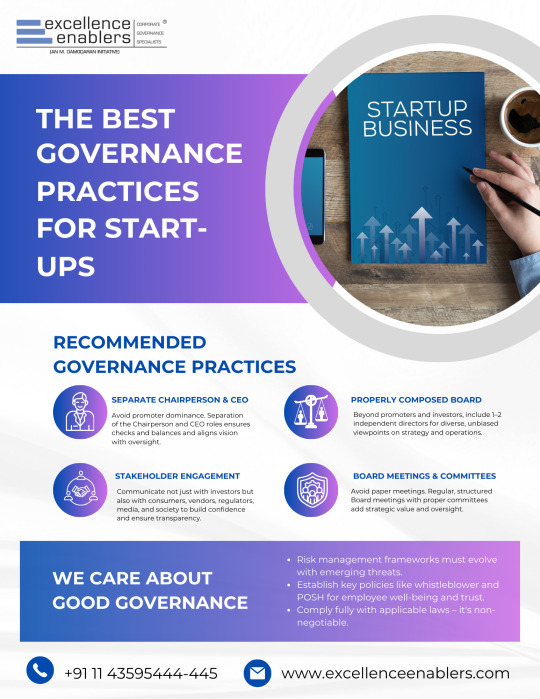#StartupStrategy
Explore tagged Tumblr posts
Text

🔍 5 Critical Things Your Pitch Deck Could Be Revealing to Patent Thieves
Understanding the Hidden Risks Before You Present
When pitching to investors or partners, your goal is to showcase the brilliance of your idea. But without proper intellectual property (IP) safeguards in place, your pitch deck could also become a roadmap for those looking to steal or replicate your innovation.
Here’s what unauthorized eyes can learn from your deck:
1. Your Core Innovation
You’re highlighting your “big idea” to attract funding. But if it’s not yet patented or protected, someone else can file before you.
2. Technical Details and Workflows
Pitch decks often include process flows, system diagrams, or architecture — enough for a competitor to reverse-engineer your product.
3. Market Strategy and Target Demographics
Sharing your go-to-market plan may reveal gaps in the market — and give your competitors an advantage they didn’t earn.
4. Visuals of Your Prototype or Product
Even mockups, sketches, or screenshots can give away key design and functionality elements.
5. Unfiled or Pending Intellectual Property
If your patents are still in the drafting or filing stage, your innovations may be exposed without legal protection.
✅ How to Stay Safe:
File for patent protection before sharing details publicly.
Use strong NDAs, but don’t rely on them alone.
Consult an IP expert to review your pitch deck before presenting.
🔐 Let IP Consulting Group Help You Secure Your Innovation
We specialize in protecting ideas before they’re shared with the world.
📧 [email protected] 🌐 www.ipconsultinggroups.com 📞 DC: +1 (202) 666-8377 | MD: +1 (240) 477-6361 | FL: +1 (239)
#PitchDeckProtection#IntellectualProperty#PatentAwareness#IPConsulting#StartupStrategy#SecureYourStartup#InnovationProtection#PatentFiling#IPSecurity
0 notes
Text
Market Entry Isn’t Just About Following Demand — It’s About Shaping It

For companies eyeing growth, the natural instinct is often to follow visible demand. It’s predictable, seemingly low-risk, and aligns with conventional wisdom. Major players like Hyundai waited until China’s auto market was booming. Amazon held off on India until e-commerce had taken root. Uber entered Indonesia only after local players like Gojek had paved the way.
But by the time you follow demand, your competitors are already there.
The smarter strategy? Shape the demand before it peaks.
In today’s rapidly evolving landscape, where digital disruption and global competition redefine markets overnight, leading companies are rethinking traditional market entry. The most successful strategies now often emerge in regions where current demand is low — but future potential is high.
So how do you choose between entering a well-trodden market and taking a calculated risk into new territory?
The Safe Route: Follow Proven Demand
This approach centers around markets with clear demand signals, mature infrastructure, and customer behaviors that are already mapped. As a market entry and feasibility studies providing firm, we see many businesses adopt this path when they’re aiming for faster returns and lower risk.
The downside? Saturation. Competing in an established market often means fighting for margin, relevance, and visibility. It’s efficient but rarely transformative.
The Strategic Route: Shape the Market Before Others Do
Some businesses take a bolder approach — entering markets before the demand is obvious. This strategy focuses on long-term gains and brand defensibility. Take Zegna, the Italian luxury brand that entered China well before the luxury boom. It took patience and investment, but when demand surged, Zegna already had trust, loyalty, and presence.
This is where feasibility studies become crucial. By evaluating economic indicators, local behavior, regulatory frameworks, and cultural context, companies can gauge whether early entry is a risk worth taking.
Three Smart Market Entry Strategies That Work
Start Small, Learn Fast Begin with a pilot or limited rollout. This minimizes risk and generates insight. As a market entry advisory firm, we recommend this method to test assumptions before full-scale investment.
Create the Category Entering early means you may need to educate the market. A strong, locally relevant value proposition — backed by patience — can position you as the market leader before competitors emerge.
Adapt and Pivot Early strategies often need refinement. Real-time insights and agility are key. Understanding local expectations and being open to pivoting can turn a potential miss into a strong market fit.
Making the Right Call
Ask yourself:
What’s your risk tolerance?
Can your product adapt to local culture and behavior?
Do you have the resources and insight to be early?
Are you working with a business feasibility studies providing firm that can ground your strategy in real market data?
How MS Can Help
At MS, we’re not just a feasibility studies provider — we’re your strategic partner in market entry. Whether you’re entering a proven market or shaping demand in a new one, we help you navigate every step. Our services include:
Feasibility studies
Market sizing and competitive analysis
Regulatory navigation
Operational setup and localization strategies
With deep regional insights and a structured approach, we ensure your market entry is aligned with both ambition and opportunity.
In market entry, timing and insight are everything. Let MS help you move not just faster, but smarter
#MarketEntry#FeasibilityStudies#BusinessExpansion#GrowthStrategy#EmergingMarkets#GoToMarket#BusinessAdvisory#StrategicGrowth#GlobalExpansion#NewMarketOpportunities#SmartInvestment#RiskManagement#BusinessDevelopment#InternationalMarkets#StartupStrategy#GlobalMarkets#LongTermGrowth#CorporateStrategy#InvestmentStrategy#MSAdvisory
0 notes
Text
Resilient businesses aren’t built during the good times. They’re built in the breakdown.
#AshkanRajaee#StartupStrategy#SystemUpgrade#CrisisEngineering#LeanOps#StartupThinking#ExecutionMatters
1 note
·
View note
Text

Randall Randy Konsker 5 Steps To Launch A Scalable Business In 2025
Discover how to build a thriving, future-ready business with expert insights from Randall Randy Konsker. This article outlines essential steps for launching and scaling a successful venture. Randall Randy Konsker shares proven strategies that help entrepreneurs create growth-driven, tech-enabled, and purpose-led companies.
#RandallRandyKonsker#EntrepreneurTips#BusinessGrowth#ScalableBusiness#StartupStrategy#BusinessSuccess#LeadershipInsights#EntrepreneurLife#BusinessDevelopment#TechForBusiness
0 notes
Text

📊 Choosing the Right Corporate Strategy Every business journey calls for a different path— 🔼 Growth when you're scaling ⚖️ Stability when you’re consolidating 🔽 Retrenchment when it's time to realign
Which phase is your business in right now?
0 notes
Text
Data Chaos or Compliance? How HealthTech Startups Can Future-Proof Data Governance from Day One
For HealthTech startups, data is both their greatest asset and their biggest risk. Without a scalable data governance framework, early momentum can quickly turn into regulatory headaches and trust issues. This blog breaks down how to embed smart, sustainable data practices from day one—before chaos takes root. From compliance readiness to investor confidence, find out why governance isn't just for enterprises anymore.
#HealthTech#DataGovernance#Startups#HealthData#DigitalHealth#HIPAA#GDPR#StartupStrategy#ComplianceByDesign#ScalableTech
0 notes
Text
What are Social Media Marketing Platforms?

In today’s digital-first world, social media marketing platforms are not just promotional tools — they are engines for business growth. With the ever-evolving online landscape, small business owners and professionals must strategically select the platforms that align with their audience, goals, and industry trends.
As we step into 2025, the choice of where to invest your time and marketing budget has never been more crucial. This blog dives deep into the top-performing social media platforms this year, and how each one can help accelerate your business growth.
Why Social Media Marketing Platforms are Crucial for Business Growth
Before we explore individual platforms, let’s understand why social media marketing is indispensable for small businesses and professionals in 2025:
1. Cost-Effective Brand Exposure
Social media offers an affordable way to get your brand in front of thousands — if not millions — of potential customers. Whether it’s organic content or paid ads, the cost per impression is significantly lower than traditional advertising.
2. Audience Engagement and Relationship Building
Platforms like Instagram and Facebook allow real-time interaction. This helps build trust and customer loyalty — essential elements for long-term growth.
3. Data-Driven Insights
Social media analytics provide real-time performance metrics, helping you understand what works and optimize campaigns accordingly.
4. Increased Website Traffic & Lead Generation
Strategically placed links and calls-to-action can drive significant traffic to your site and turn followers into leads or paying customers.
Top Social Media Marketing Platforms to Focus on in 2025
Let’s explore the most impactful social media marketing platforms that can help small businesses grow in 2025:
1. Instagram
Best for: Visual branding, product showcases, influencers, lifestyle businesses.
Instagram remains a powerhouse for visual storytelling. With features like Reels, Stories, and Shopping, it’s a prime space for product-based businesses and personal brands to engage audiences.
Why Use It in 2025:
High engagement through short-form video content.
In-app shopping streamlines the customer journey.
Influencer marketing thrives here.
Pro Tip: Use Instagram Reels with trending audio to boost organic reach.
2. Facebook
Best for: Local businesses, B2C, community building, service providers.
Facebook may be aging, but it’s still relevant — especially for businesses targeting Gen X, Boomers, or local markets. Its robust advertising system and community features like Groups make it ideal for nurturing long-term relationships.
Why Use It in 2025:
Advanced targeting options through Meta Ads Manager.
Facebook Groups offer community-driven engagement.
Integration with WhatsApp and Instagram simplifies cross-platform campaigns.
Pro Tip: Leverage Facebook Live to host Q&A sessions or product demos.
3. LinkedIn
Best for: B2B marketing, professional services, personal branding, recruitment.
LinkedIn has evolved into more than just a networking platform. It’s now a content-rich hub for professionals, thought leaders, and businesses seeking to build authority.
Why Use It in 2025:
Great for lead generation in B2B spaces.
Build credibility through industry-related posts.
LinkedIn Ads offer precise targeting by job title, company size, and more.
Pro Tip: Use carousel posts and personal storytelling to increase engagement.
4. TikTok
Best for: Brands targeting Gen Z, educational content, entertainment, viral marketing.
TikTok continues to disrupt how content is consumed. It’s not just for teens — businesses across industries are finding innovative ways to go viral, educate, and engage.
Why Use It in 2025:
Massive organic reach potential.
Short-form video content is dominating user attention.
Paid ads can be hyper-targeted and high-performing.
Pro Tip: Create “edutainment” content — educational but fun — to showcase expertise.
5. YouTube
Best for: Long-form content, tutorials, product reviews, thought leadership.
YouTube is the second-largest search engine after Google. For small business owners willing to invest in content creation, YouTube can become a long-term traffic and branding asset.
Why Use It in 2025:
Evergreen content keeps delivering value over time.
Great for SEO and brand trust.
Monetization opportunities through the YouTube Partner Program.
Pro Tip: Optimize your videos with strong titles, tags, and engaging thumbnails.
6. Pinterest
Best for: E-commerce, design, fashion, food, lifestyle, DIY niches.
Pinterest is often underrated, but it’s a goldmine for driving traffic and sales, especially for product-focused businesses.
Why Use It in 2025:
Pins act like mini search results — with long shelf lives.
Users come to Pinterest with purchase intent.
Strong visual platform for showcasing products and ideas.
Pro Tip: Create keyword-optimized “Idea Pins” for higher engagement.
7. X (formerly Twitter)
Best for: News updates, real-time engagement, tech, SaaS, thought leadership.
While X has undergone major changes, it still holds value for businesses looking to engage in real-time discussions, customer service, or build a professional presence in certain niches.
Why Use It in 2025:
Fast communication channel for updates or announcements.
Great for building authority through threads and insights.
Active tech and finance communities.
Pro Tip: Use X Spaces to host live audio discussions on niche topics.
How to Choose the Right Social Media Marketing Platforms for Your Business
With so many options, here’s a quick framework to help you decide where to focus:
1. Know Your Audience
Where does your target demographic spend their time online? Gen Z loves TikTok; professionals hang out on LinkedIn.
2. Define Your Business Goals
Looking to drive sales? Instagram and Pinterest might be your best bet. Building authority? Focus on YouTube and LinkedIn.
3. Assess Your Content Bandwidth
Each platform favors a different content type. Choose one or two you can consistently create content for.
4. Track, Test, and Tweak
Use analytics to monitor what’s working. Don’t be afraid to pivot.
Conclusion
In 2025, your business doesn’t need to be everywhere — but it does need to be strategic. Focusing on the right social media marketing platforms allows you to build relationships, grow visibility, and convert followers into loyal customers.
Whether you’re a professional building your brand or a small business aiming for digital expansion, there’s never been a better time to harness the power of social media.
Start small, stay consistent, and scale smartly.
#socialmediamarketing#digitalmarketingtips#marketingplatforms#smallbusinessgrowth#growyourbrand#onlinemarketingstrategy#2025trends#socialmediaforbusiness#entrepreneurmindset#contentmarketing#brandingstrategy#socialmediatips#businesstips#startupstrategy#sagadesigns#digitalpresence#marketingblog#smallbusinessadvice#socialgrowth#marketingforcreatives
1 note
·
View note
Text
Why Startups Should Go Cloud-First

Startups don’t just compete on product — they compete on speed, scalability, and smarter infrastructure. For emerging businesses, especially in tech-forward hubs like Chicago, the difference between surviving and thriving often comes down to one key strategy: going cloud-first.
In this blog, we explore how a cloud-first approach helps startups scale fast, cut unnecessary costs, boost team productivity, and even win over investors.
What Does “Cloud-First” Really Mean?
Adopting a cloud-first mindset means prioritizing cloud-based platforms, tools, and services across all areas of your startup — from infrastructure and product development to operations and team collaboration.
Rather than investing in traditional on-premises systems, cloud-first startups leverage services like AWS, Azure, Google Cloud, and Oracle Cloud to build scalable, flexible, and affordable tech stacks.
As a result, startups gain access to:
Real-time scalability
Faster go-to-market cycles
Usage-based pricing
Enhanced security and data redundancy
Better remote collaboration and team agility
Why It Matters for Startups in Chicago and Across the USA
Startups based in Chicago and other U.S. cities are increasingly adopting cloud-first to gain a market edge. Here's why:
Scale Without Overhead
Instead of investing thousands into hardware and IT support, cloud-first startups only pay for what they use. This allows them to scale up or down on demand, especially during high-growth phases.
Speed Equals Survival
In fast-paced ecosystems like Chicago’s startup scene, time-to-market can make or break a business. Cloud-native tools enable rapid development, deployment, and iteration, so your MVP launches faster and adapts quickly to user feedback.
Built for the Remote Age
With hybrid and remote work becoming the norm, cloud-first infrastructure enables seamless collaboration across time zones — perfect for startups serving nationwide clients or building distributed teams.
Enterprise-Grade Security, Startup Budget
Top cloud platforms come with built-in encryption, automated backups, and compliance-ready infrastructure, helping you stay secure without hiring a cybersecurity team from day one.
Cloud-First Isn’t Just Tech — It’s a Business Strategy
Moving to the cloud isn't just about convenience. It's a foundational shift that allows you to:
Reduce technical debt
Experiment without fear of sunk cost
Automate workflows
Focus on your product, not your servers
Impress investors with lean, modern operations
Furthermore, cloud-first startups can pivot quickly — from launching a new feature to expanding into a new region — without expensive re-architecture.
Attracting Investors with Cloud-First Architecture
Investors don’t just invest in ideas — they invest in scalability.
By building cloud-first, you show venture capitalists that your startup is:
Agile and tech-forward
Budget-efficient
Positioned for rapid scale
Resilient in the face of technical disruptions
According to recent trends, startups with cloud-native infrastructure raise capital faster and more often, thanks to reduced risk and better operational maturity.
Why Partner with Avion Technology?
Choosing the right cloud partner can make or break your startup's growth trajectory. Here’s why Avion Technology is the ideal fit for startups in Chicago and across the USA:
✅ Deep Technical Expertise
We’ve helped startups and scale-ups deploy scalable, secure, and performance-optimized cloud infrastructure across AWS, Google Cloud, Azure, and Oracle Cloud.
✅ USA-Based with Chicago Roots
We understand the Chicago startup ecosystem and tailor cloud strategies to local and regional business dynamics while supporting national growth.
✅ Fast, Founder-Friendly Support
We work like an extension of your team — lean, agile, and startup-savvy. No tech jargon. Just real results, fast.
✅ Custom Cloud Blueprint
We don’t believe in one-size-fits-all. Get a tailored roadmap aligned with your MVP, investor goals, and product roadmap.
✅ Ongoing Partnership
Beyond deployment, we support you with optimization, cost control, performance tuning, and scaling as your business grows.
❓ Frequently Asked Questions (FAQs)
1. What is “cloud-first” in simple terms?
It means cloud tools and platforms are your default for all operations — from hosting your app to managing files. No in-house servers. Just scalable, remote-ready infrastructure.
2. Is going cloud-first affordable for early-stage startups?
Yes. Cloud services are pay-as-you-go, which keeps your burn rate low. Many providers also offer startup credits and discounts.
3. Which cloud provider is best for startups in Chicago or the USA?
It depends on your needs:
AWS for flexibility and ecosystem
Google Cloud for AI/ML tools
Azure for Microsoft integrations
Oracle Cloud for enterprise-grade scale
Avion Technology helps you select and deploy the best one based on your business goals.
4. Is cloud computing secure for startups?
Absolutely. Major cloud providers use military-grade encryption, access control, and compliance features. When configured properly, cloud setups are more secure than legacy systems.
5. How do I know if my startup is cloud-ready?
If you have a digital product, distributed team, or fast-growth ambitions — you’re ready. Schedule a free cloud-readiness assessment with Avion Technology to find out where you stand.
Build Your Cloud-First Startup with Avion Technology
Your vision deserves the right foundation. At Avion Technology, we help Chicago startups and USA-based innovators transition to cloud-first with clarity and confidence.
Here’s how we can help:
Cloud-Readiness Check Let us evaluate your current setup and show you smarter, scalable cloud options tailored to your growth stage.
Custom Cloud Blueprint We don’t believe in one-size-fits-all. Get a strategy document customized for your startup’s needs, investors, and timeline.
Ongoing Tech Partnership From implementation to optimization, we guide your cloud journey with proven expertise.
Ready to Go Cloud-First?
👉 Book Your Free Cloud Readiness Session
#CloudFirst#ChicagoStartups#USAStartups#CloudForStartups#StartupGrowth#CloudComputing#TechStartups#ScaleWithCloud#StartupStrategy#CloudMigration#DigitalTransformation#StartupSuccess#InvestorReady#ScalableInfrastructure#AvionTechnology
0 notes
Text
THE BEST GOVERNANCE PRACTICES FOR START-UPS

#StartupGovernance#CorporateGovernance#StartUpSuccess#GovernanceMatters#SustainableGrowth#BusinessTransparency#StartUpStrategy
0 notes
Text
Want to build the next big fitness app like ClassPass?
The demand for flexible, feature-packed fitness solutions is booming—and if you're a founder or fitness brand owner, this is your sign to dive in.
This blog on how to develop a fitness app like ClassPass covers: 🏋️♀️ Must-have features users love 💼 Business models that scale 💰 Development cost breakdown ⚙️ Tech stack to ensure performance and flexibility
Whether you're a startup or gym chain looking to go digital, this is your complete playbook.
#FitnessAppDevelopment#FitnessTech#ClassPassLikeApp#MobileAppDevelopment#StartupStrategy#DigitalFitness#AppForGyms#UserCentricDesign#ScalableSolutions#HealthTech#KodyTechnolab#TechForFitness#AppInnovation#FitTechTrends
0 notes
Text
Business Start-up Consulting Services: Unlocking Expert Guidance for a Successful Launch
Starting a business requires careful planning, strategic decision-making, and expert guidance. Business Start-up Consulting Services provide the necessary support to ensure a smooth and successful launch. By partnering with experienced consultants like Corporate Professionals, entrepreneurs can turn their ideas into thriving businesses while avoiding common start-up challenges.
0 notes
Text

Start small, protect smart. IP is your startup’s silent partner.
Start small, protect smart." In the fast-paced world of startups, your intellectual property (IP) isn’t just a legal formality—it’s your silent partner. Whether it’s a unique brand, product design, algorithm, or creative content, your IP is often the most valuable asset you own. Protect it early to strengthen investor confidence, block copycats, and pave the way for long-term success. Don’t wait until it’s too late—build your foundation on protection as much as innovation.
📌 Follow IP Consulting Group for more IP-related updates.
💼 IP Consulting Group is the right choice to fulfill your needs!
Contact Us
DC: +1 (202) 666-8377 MD: +1 (240) 477-6361 FL +1 (239) 292–6789 Website: https://www.ipconsultinggroups.com/ Mail: [email protected] Headquarters: 9009 Shady Grove Ct. Gaithersburg, MD 20877 Branch Office: 7734 16th St, NW Washington DC 20012 Branch Office: Vanderbilt Dr, Bonita Spring, FL 34134
#IPConsultingGrop#IPProtection#StartupLife#IntellectualProperty#ProtectYourIdeas#EntrepreneurTips#StartupStrategy#InnovationMatters#BuildSmart#FoundersFirst#SilentPartner
0 notes
Text
🧠 Marketing campaigns fail all the time — and not for the reasons people think. It's not your funnel. It’s not your content. It’s your database. In this no-BS piece, Ashkan Rajaee reveals why volume is the real secret to successful outbound campaigns—and why most startups are doomed from the start.
0 notes
Text
Healthcare Startups: Navigating Challenges and Seizing Opportunities

Introduction
The healthcare sector is ripe with innovation, presenting numerous opportunities for startups to make a significant impact. From telemedicine and digital health to AI-driven diagnostics and personalized medicine, the potential for growth and transformation is immense. However, navigating the healthcare landscape is not without its challenges. This blog explores the key hurdles healthcare startups face and provides strategies for seizing opportunities to thrive in this dynamic industry.
Key Challenges Faced by Healthcare Startups
Regulatory Hurdles: Healthcare is one of the most regulated industries, with stringent requirements to ensure patient safety and data security. Startups must navigate complex regulatory frameworks, including FDA approvals, HIPAA compliance, and various international regulations. Understanding and adhering to these regulations is crucial for gaining trust and avoiding legal pitfalls.
Funding and Financial Sustainability: Securing funding is often a significant challenge for healthcare startups. The industry’s lengthy development cycles and high costs for research, development, and clinical trials can be a barrier to entry. Startups must develop a compelling value proposition to attract investors and demonstrate a clear path to profitability.
Data Security and Privacy: Handling sensitive patient data requires robust security measures. Startups must implement stringent data protection protocols to comply with regulations and maintain patient trust. Ensuring data security can be both technically challenging and costly.
Integration with Existing Systems: Healthcare systems and technologies are often fragmented, making it difficult for startups to integrate their solutions with existing electronic health records (EHRs) and other healthcare IT systems. Seamless integration is essential for ensuring interoperability and maximizing the impact of new solutions.
Market Penetration and Adoption: Gaining traction in the competitive healthcare market requires strategic marketing and strong evidence of efficacy. Startups need to demonstrate the value of their solutions through clinical trials, pilot programs, and real-world evidence to persuade healthcare providers and patients to adopt their technology.
Seizing Opportunities in the Healthcare Sector
Leverage Emerging Technologies: Emerging technologies such as artificial intelligence, blockchain, and the Internet of Things (IoT) offer transformative potential for healthcare. Startups that harness these technologies can develop innovative solutions for diagnostics, treatment, and patient management.
Focus on Patient-Centered Care: With a growing emphasis on patient-centered care, startups have the opportunity to develop solutions that enhance the patient experience. This includes telemedicine platforms, mobile health apps, and personalized treatment plans that empower patients to take control of their health.
Collaborate with Healthcare Providers: Building partnerships with healthcare providers, research institutions, and other stakeholders can provide valuable insights and access to resources. Collaboration can facilitate clinical validation, enhance credibility, and accelerate market entry.
Address Healthcare Inefficiencies: Identifying and addressing inefficiencies in the healthcare system can lead to significant improvements in patient outcomes and operational efficiency. Startups that offer solutions to streamline processes, reduce costs, or improve care coordination have the potential for substantial impact.
Embrace Value-Based Care Models: The shift towards value-based care presents opportunities for startups to develop solutions that support care quality and cost-effectiveness. Tools that enhance care coordination, measure outcomes, and support preventive care can align with the goals of value-based care.
Stay Agile and Adaptive: The healthcare landscape is continually evolving, driven by technological advancements, regulatory changes, and shifting patient needs. Startups must remain agile and adaptable, staying informed about industry trends and being prepared to pivot their strategies as needed.
Outcome
Healthcare startups operate in a complex and highly regulated environment, but the potential for innovation and impact is substantial. By understanding and navigating the challenges of the industry, and by capitalizing on emerging opportunities, startups can play a crucial role in transforming healthcare. Embracing technological advancements, focusing on patient-centered solutions, and fostering strategic partnerships are key to overcoming obstacles and achieving long-term success in the healthcare sector.
#HealthcareStartups#StartupChallenges#HealthTech#BusinessOpportunities#HealthcareInnovation#StartupStrategy#DigitalHealth
0 notes
Text
International Business Specialization: How Can It Energize Your Entrepreneurial Skills

Ever wanted to run your very own business? Well, an international business specialization can be the ace up your sleeve that you have never known you needed. Let us reveal how such a global perspective materializes in real life for the dreams of your startup. Small businesses can still cause an international ruckus even today, in this world where everything is highly connected. Here's how the International Business program, at DY Patil Distance MBA, will be able to give you that edge:
A Global Mindset
Think big, act local: Learn the art of being able to modulate your ideas by the cultures and markets of different countries.
Spot opportunities: By keeping an eye on those gaps in international markets, your business can fill them.
Navigate diversity: Be comfortable working with every walk of life—an important ability of an entrepreneur.
Cracking International Markets
1. Market Entry Strategies: This helps outline how best to enter their new foreign country markets with your product or service.
2. Cross-Border Regulations: Inside scoop on international trade laws, taxes, and business practices.
3. Global Supply Chains: Know how to source materials and handle logistics across borders.
How the Program Cushions Your Startup Skills
1. Network Like a Pro: Connect globally with classmates and alumni. You never know where to locate your next business partner or mentor.
2. Be on top of your game with risk management: Surf the waves of international business. From changes in currency rates to political winds, protection will be yours.
3. Cultural Intelligence: Develop the soft skills to be able to work across cultures, develop diverse teams, and relate with your customers, quite literally across the earth.
4. Financial Savvy: Learn everything about international finance and be sharp in the business when it comes to finance, pricing, and expansion options.
5. Tech Tools: Get introduced to the latest digital tools for use in the management of operations, right from project management apps to e-commerce platforms.
The DY Patil Distance MBA Advantage
So how are you going to fit all of this learning in with everything that you do in a day? Here is why you should try and find time to do a DY Patil Distance MBA:
Flexibility: Study online at the same time as working on your business idea.
Real-world focus: Apply right away in your entrepreneurial projects what you have learned.
Expert insights: Learn from professors who have experience in international business.
Global community: Interact with a group of diverse aspirational entrepreneurs coming from different cultures across the world.
Now imagine having that great business concept. Step it up a notch with an international business specialization, where suddenly, your target market is no longer just your own country or hometown, but the entire world.
You will get the help you need to be able to put into practice:
1. Product adaptation across different markets
2. Hiring a foreign and local workforce
3. Global finance complexities and regulations
4. Identify opportunities that others can't
Ready to go global?
An International Business Specialization, such as that in the DY Patil Distance MBA program, is all about practical skills other than theoretical content and gives one a global perspective that will help you realize your entrepreneurial dream across borders. If you dream of building a business that spans borders, do consider adding this guide to your toolkit; your startup could be the next global success story. Remember that today, it is no longer an option but a mandate for entrepreneurs to think globally. Are you ready to take your business ideas worldwide?
#InternationalBusiness#Entrepreneurship#StartupSuccess#GlobalMindset#DYPatilMBA#BusinessEducation#StartupStrategy#GlobalEntrepreneur
0 notes
Text
Steps to Successfully Launch Your Minimum Viable Product (MVP)
Building a Minimum Viable Product (MVP) is crucial for efficiently validating your business idea with minimal resources. By focusing on essential features and iterative development, you can quickly gather user feedback, refine your product, and ensure alignment with market needs. Follow these essential steps to successfully develop and launch your MVP.

#MVPDevelopment#ProductLaunch#StartupStrategy#AgileDevelopment#TechInnovation#BusinessGrowth#LeanStartup#ProductManagement
0 notes